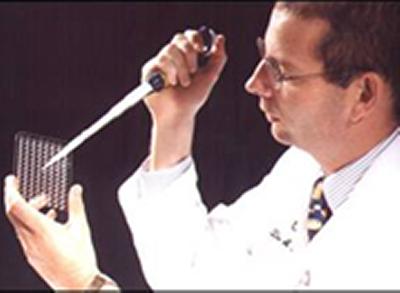Eye drug trial marks milestone for Southampton's groundbreaking research centre

Scientists from the University of Southampton are trialling a drug that could repair vision without the need for surgery.
Andrew Lotery, professor of ophthalmology at the University and consultant ophthalmologist at Southampton Eye Unit, and his team are studying an experimental drug called Microplasmin in patients with focal vitreomacular adhesion.
The condition means the centre of the eye has an unusually strong connection to the retina, which can cause vessel and retinal distortion and result in deterioration of sight.
Researchers will evaluate the safety and effectiveness of the drug when injected directly into the eye.
Early clinical studies have shown that the injection could potentially tackle vitreomacular adhesion effectively without the risks associated with surgery and may have a part to play in treating other sight-threatening conditions.
The study is the 500th to take place at the Wellcome Trust Clinical Research Facility, (WTCRF) a partnership between the University and Southampton University Hospitals NHS Trust.
Since opening in 2001, the WTCRF has supported the translational clinical research of the city's best scientists and investigators, involving over 32,000 patients and volunteers.

Using specialist facilities and teams of trained research nurses, some of the country's top experts are working to develop new treatments and methods of delivering care. Research is conducted in a wide range of diseases and conditions, including asthma, cancer, food allergies, infectious diseases, blindness and arthritis.
Professor Lotery said: "Southampton Eye Unit has worked with Wellcome Trust research nurses in 24 studies over the last six years.
"This has led to significant research breakthroughs and many patients have had their sight saved by being enrolled in our studies. My research programme would not be possible without the WTCRF."
Dr Saul Faust, consultant paediatrician and director of the WTCRF, said: "It is fantastic that the centre is able to support ground breaking research such as Andrew's that has such a positive impact on patient care. We are looking forward to yet more success in the future as we expand our activities in partnership with all our investigators, collaborators and research participants.
"The strength of our staff team is key to our growth and I would like to thank them all for their dedication and hard work."
Ends